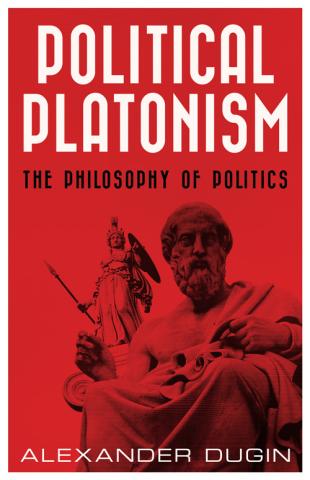Political Platonism
Primary tabs

The Philosophy of Politics
Alexander Dugin’s Political Platonism offers a seminal analysis of the contemporary philosophical crisis from one of the best-known writers and political commentators in post-Soviet Russia. Through a series of essays, course transcripts, and a single long interview—each remarkable for the depth of its learning and the boldness of its vision—Dugin exposes the profoundest roots of the Western philosophical tradition, offering his view of why it has reached its final terminus, and his indication of where a new beginning must be sought.
The works collected in this volume present Dugin’s theory of Political Platonism as a fundamental philosophical and political orientation, capable at once of reviving higher political and social forms and furnishing solid ground for resistance to the collapse of the contemporary world. His multi-perspective thesis offers a thorough and thought-provoking critique of modernity and a masterful survey of Western philosophy, reaching from before Heraclitus to beyond Heidegger. In its provocative, clear-sighted analyses and its visionary flights, this book provides an invaluable reference for those already familiar with Dugin, and an intriguing introduction for those coming to him for the first time.
https://arktos.com/product/political-platonism/
Contents
1. The Philosophy of Politics
2. Deconstruction of Democracy
- The Concept of “Democracy” Is Not Neutral and Not Self-Evident
- Demos in “Democracy”: Aristotle’s Etymology
- The Metaphysical Foundations of Democracy: The Hypotheses of the Parmenides
- The Hypotheses of the Parmenides and Types of Democracy
- Political Platonism
3. Political Platonism and Its Ontological Bases
- Part 1. Total Homologies of Power in Platonism
- Part 2. The Structures of Platonopolis and the Hypotheses of the Parmenides
- Part 3. The Aristomorphosis of Politics in Aristotle
- Conclusion
4. Traditionalism against Devilopolis
- From Progress to Eschatology: A Change of Reference Points
- Traditionalism as Philosophy and Its Appearance in Russia
- René Guénon: The Foundations of Philosophy
- Julius Evola’s Revolt Against the Modern World
- Traditionalism and Non-Conformism
- Reasons for the Relevance of Traditionalism
- Towards Political Platonism
- Critique of Devilopolis: Opening the “World Egg” from Below
- Russia’s Eschatological Choice
5. Plato’s Relevance for Russia and the Platonic Minimum
6. Christianity and Neo-Platonism
7. Heraclitus and Contemporary Russia
8. A Conversation about Noomachy
9. The Existential Theory of Society
- Implicit Sociology
- Volk Als Dasein
- The Existential Structure of the Volk
- The Project of Authentic Society: The Existential Empire
- The Narod and Its God: The Religion of Selbst
10. Thinking Chaos and the Other Beginning of Philosophy
